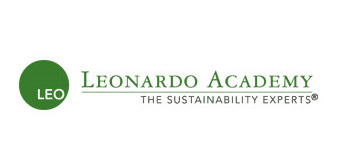Leonardo Academy Schedules Webinar to Discuss White Paper on Defining the Impacts of Forest Carbon Sequestration Offsets
(3BLMedia/theCSRfeed) (Madison, WI, December 15, 2009) – Leonardo Academy announced today that it will hold a webinar on December 17 to present and discuss their recently-released white paper, “Defining Forest Sequestration Impacts: Tonne to Tonne-Year Correlations Implicit in Existing Forestry Offset Standards.” Determining how to recognize and reward existing forest owners for the carbon held in their forest is essential in successfully addressing climate change. Through the white paper and webinar, Leonardo Academy aims to bring to light an issue that is under-addressed in emissions protocols – how long carbon must be held in forests that receive carbon sequestration credits.
A major topic to be discussed is the possibility of a new metric, tonne-years. Tonne-years are introduced in the white paper as a way to account for not only the quantity of carbon emissions specified in a forest carbon sequestration credit, but also the length of time during which that carbon must remain sequestered. The paper goes beyond simply introducing this metric by also calling attention to the need to determine an appropriate ratio between tonne-years of carbon sequestration and the capacity to offset a tonne of carbon emissions.
Forestry’s invaluable and unique contribution to combating climate change will also be discussed. Unlike other types of offset projects that reduce greenhouse gas emissions in a permanent way, such as by generating electricity using wind or collecting and combusting methane emitted from landfills, trees that absorb carbon dioxide (CO2) from the atmosphere and store (sequester) the carbon can subsequently rerelease CO2 due to natural or human-caused destruction. While prominent offset programs employ a variety of tactics to ensure that forestry offset credits represent permanent reductions in greenhouse gas emissions, no offset program requires credited carbon stocks to be maintained ad infinitum. Rather, each tonne of carbon offset awarded represents an implied number of what Leonardo Academy refers to as “tonne-years” – a tonne of carbon held in a forest for one year.
A comparison of three prominent emissions standards will also be presented to help clarify the relationship between “tonnes” and “tonne-years” in current emissions protocols. The result of this comparison, as described in the paper, was that the standards varied widely, from a 1:1 all the way to a 1:250 tonne-to-tonne-year ratio. This demonstrated that while one standard required only one year of forest maintenance for a one-tonne carbon offset, another included close to 250 years of maintenance in the same commodity.
Through the webinar, Leonardo Academy will base the discussion on the idea that the time element already implicit in existing forest offset protocols should be made explicit to consumers through the use of the tonne-years metric. This would not only clarify the true impact that a tonne of carbon offsets has on climate change, but would also provide a common language for the comparison of existing forest carbon offsets, setting the stage for an open discussion about the quantity of tonne-years that must be used to offset a tonne of greenhouse gas emissions. In addition, these concepts are central to the Leonardo Academy Draft Standard for Trial Use for Emissions Inventories, Offsets, Reduction Credits, and TAGs, which is currently under development. Leonardo Academy hopes that the discussion will bring these issues to light and raise awareness among stakeholders in forestry, emissions, and other important fields.
To participate in the webinar, visit https://www2.gotomeeting.com/register/268177131
Title: Defining the Impacts of Forest Carbon Sequestration Offsets
Date: Thursday, December 17, 2009
Time: 10:00 AM - 11:00 AM CST
To view a full copy of Leonardo Academy’s white paper, visit http://leonardoacademy.org/publications/reports/300-tonne-to-tonne-year-correlations.html.
LEONARDO ACADEMY – Leonardo Academy (www.leonardoacademy.org) is a charitable 501(c)(3) nonprofit organization dedicated to advancing sustainability and environmental stewardship. Leonardo Academy develops new approaches, methods and metrics for sustainability and also helps companies, organizations, families and individuals enhance sustainability. Leonardo Academy provides assessments, strategy development, and implementation for sustainability including emissions, LEED, and the supply chain.
For More Information:
Michael Arny President, Leonardo Academy michaelarny@leonardoacademy.org Sonia Carlson Emissions Services Manager, Leonardo Academy sonia@leonardoacademy.org
